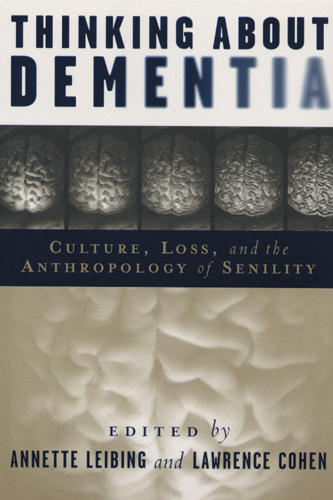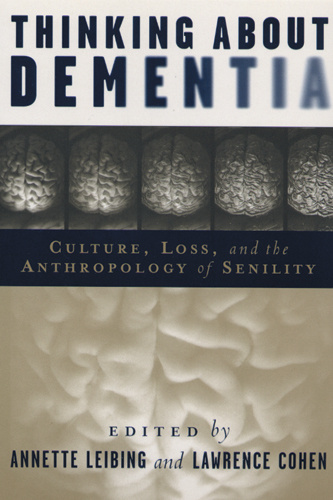Our shopping cart is currently down. To place an order, please contact our distributor, UTP Distribution, directly at utpbooks@utpress.utoronto.ca.
Thinking About Dementia
Culture, Loss, and the Anthropology of Senility
Bringing together essays by nineteen respected scholars, this volume approaches dementia from a variety of angles, exploring its historical, psychological, and philosophical implications. The authors employ a cross-cultural perspective that is based on ethnographic fieldwork and focuses on questions of age, mind, voice, self, loss, temporality, memory, and affect.
Taken together, the essays make four important and interrelated contributions to our understanding of the mental status of the elderly. First, cross-cultural data show that the aging process, while biologically influenced, is also culturally constructed. Second, ethnographic reports raise questions about the diagnostic criteria used for defining the elderly as demented. Third, case studies show how a diagnosis affects a patient's treatment in both clinical and familial settings. Finally, the collection highlights the gap that separates current biological understandings of aging from its cultural meanings.
As Alzheimer's disease and other forms of dementia continue to command an ever-increasing amount of attention in medicine and psychology, this book will be essential reading for anthropologists, social scientists, and health care professionals.
A seminal contribution to the field of medical anthropology on an extremely important topic. A useful and interesting volume for undergraduates, graduate students, and medical researchers in dementia.
Acknowledgements vii
Introduction 1
Part One
1 Dementia-Near-Death and "Life Itself" 23
2 The Borderlands of Primary Care 43
3 Negotiating the Moral Status of Trouble 64
4 Diagnosing Dementia 80
5 The Biomedical Deconstruction of Senility and the Persistent Stigmatization of Old Age in the United States 106
Part Two
6 Generic Susceptibility and Alzheimer's Disease 123
Part Three
7 Coherence without Facticity in Dementia 157
8 Creative Storytelling and Self-Expression among People with Dementia 180
9 Embodies Selfhood 195
10 Normality and Difference 218
11Divided Gazes 240
12 Being a Good Rojin 269
Contributions 289
Index 291





